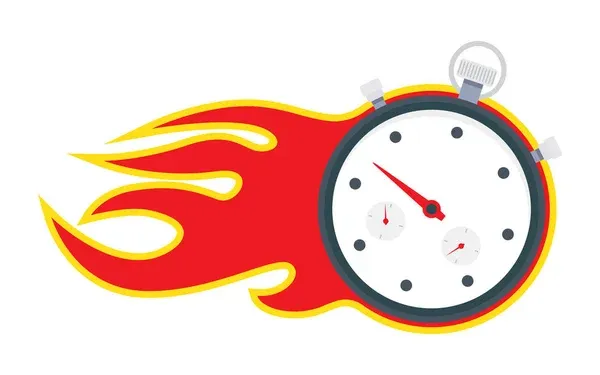Utilizing Shopify Meta Tags Effectively for Search Engine Optimization
Learn how to utilize Shopify meta tags effectively for SEO to enhance your store's visibility on search engine results pages (SERPs). Transform your Shopify store's SEO with SEOPro and embrace continuous improvement for exponential growth.

In the competitive realm of online commerce, maximizing your Shopify store's visibility is paramount. Meta tags serve as a crucial tool in achieving this goal by enhancing your store and inventory page's presence on search engine results pages (SERPs). Understanding and leveraging meta tags effectively can significantly boost your store's search engine rankings and attract a broader audience of potential customers.
Shopify Tags Demystified
Meta tags are snippets of HTML code that provide information about a web page's content to search engines and website visitors. They play a vital role in helping search engines understand and index your site's pages, ultimately influencing how your online store appears in search results.
Types of Meta Tags:
- Title Tags: These tags specify the title of a web page and appear as clickable links on SERPs. They are crucial for enticing users to click through to your site and should accurately reflect the content of each page.
- Meta Descriptions: Meta descriptions provide a brief summary of a page's content beneath its title tag on SERPs. Compelling meta descriptions can significantly impact click-through rates by providing users with valuable information about your store's offerings.
- Meta Keywords: While less relevant in modern SEO practices, meta keywords were historically used to indicate the main topics or themes of a web page. However, search engines now place less emphasis on meta keywords due to their susceptibility to manipulation.
Crafting Compelling Meta Tags
- Incorporating Relevant Keywords Naturally: Title tags should include relevant keywords that accurately represent the content of the page. However, avoid keyword stuffing, as this can have a negative impact on your store's SEO.
- Crafting Concise and Engaging Titles: Keep title tags concise and engaging, ideally between 50-60 characters, to ensure they display properly on SERPs and attract users' attention.
- Avoiding Duplication Across Pages: Each page on your Shopify store should have a unique title tag to differentiate it from other pages and provide users with clear information about its content.
Crafting Persuasive Meta Descriptions:
- Summarizing Page Content Effectively: Meta descriptions should provide a concise summary of a page's content, highlighting its key features and benefits to entice users to click through.
- Encouraging Clicks with a Clear Call-to-Action: Include a clear call-to-action (CTA) in your meta descriptions to prompt users to visit your store. Whether it's a special offer, promotion, or invitation to learn more, a compelling CTA can significantly impact click-through rates.
Implementing Meta Tag Optimization
- Navigating to Product, Collection, and Page Settings: Access meta tags for your Shopify store's pages through the admin dashboard. Navigate to product, collection, or page settings to make adjustments as needed.
- Making Adjustments via the Shopify Admin Dashboard or Theme Editor: Shopify provides user-friendly interfaces for editing meta tags. Make changes directly within the admin dashboard or use the theme editor to customize meta tags within your store's theme files.
Exploring Shopify SEO Apps for Enhanced Meta Tag Optimization:
- Discovering Apps that Simplify Meta Tag Management: Explore the Shopify App Store to find apps that streamline the process of managing and optimizing meta tags for your store.
- Installing and Configuring Preferred Apps for Improved SEO Performance: Once you've found a suitable app, install and configure it according to your preferences. Many apps offer features such as bulk editing, automation, and keyword suggestions to help you optimize your meta tags more effectively.
Leveraging SEOPro's Bulk Update Feature:
- Utilizing Tools for Bulk Optimization of Product Titles, Meta Descriptions, Image Alt Text, and URLs: SEOPro offers a comprehensive suite of tools for bulk optimization of various meta tags, including product titles, meta descriptions, image alt text, and URLs. These tools streamline the optimization process, allowing you to make changes to multiple pages at once.
- Streamlining the Optimization Process for Increased Efficiency and Effectiveness: By leveraging SEOPro's bulk update feature, you can save time and effort while ensuring that your store's meta tags are fully optimized for search engines. This streamlined approach maximizes efficiency and effectiveness, helping you achieve better SEO results for your Shopify store.
Monitoring Meta Tag Effectiveness
To ensure the success of your meta tag optimization efforts, it's essential to monitor their effectiveness and adapt as needed. Here's how you can track and analyze the performance of your meta tags:
Tracking Changes in Search Engine Rankings:
Regularly monitor your store's search engine rankings for relevant keywords using tools like Google Search Console or third-party SEO platforms. Look for trends and fluctuations to assess the impact of your meta tag optimizations on your store's visibility in search results.
Analyzing Click-Through Rates (CTR) on Search Engine Results Pages (SERPs):
Evaluate the click-through rates of your title tags and meta tags represent your descriptions on SERPs. A higher CTR indicates that your meta tags are effectively enticing users to click through to your product pages or store. Analyze CTR data to identify which meta tags are performing well and which may need further optimization.
Utilizing Shopify Analytics and Third-Party Tools for Performance Assessment:
Leverage Shopify's built-in analytics tools to track traffic, engagement, and conversions on your store. These tools provide valuable insights into user behavior and site performance, allowing you to assess the impact of your meta tag optimizations collection page, on overall store performance. Additionally, consider using third-party analytics platforms for deeper insights and advanced reporting capabilities.
By closely monitoring the effectiveness of your meta tags other search engines, you can identify areas for improvement and refine your optimization strategies to maximize your store's visibility and attract more organic traffic. Regular analysis and adaptation are key to maintaining and improving your product tag and store's search engine performance over time.
Conclusion
In conclusion, mastering the art of meta tag optimization is crucial for maximizing your Shopify store's visibility and attracting potential customers. By understanding the purpose of meta tags, crafting compelling titles and descriptions to create tags for blog posts, and implementing optimization techniques effectively, you can significantly improve your store's search engine rankings and drive more organic traffic.
With the plethora of tools and resources available, including Shopify's built-in features and third-party apps like SEOPro, optimizing your meta tags has never been more accessible. By leveraging these tools, such as SEOPro's Bulk Update feature for streamlined optimization tasks, you can save time and effort while ensuring that your meta tags product images are fully optimized for search engines.
Transform Your Store's SEO with SEOPro: Unleash the Power of Optimization
Harness the full potential of your Shopify store with SEOPro's comprehensive suite of SEO optimization tools. Elevate your business to unprecedented heights by seamlessly optimizing every tag name your Shopify store for SEO. With SEOPro, the daunting task of meta tag optimization becomes a rewarding and effortless endeavor, empowering you to achieve your goals and thrive in the fiercely competitive e-commerce landscape.
Embrace the Journey of Continuous Improvement
Meta tag optimization is not a one-time task but an ongoing process. Stay ahead of the curve by continuously monitoring the effectiveness of your meta tags, analyzing performance metrics, and adapting your strategies accordingly. With SEOPro by your side, you can proactively respond to changes in search engine algorithms and user behavior, ensuring that creating product tags for your store maintains and improves its search engine performance over time.
Ignite Your Growth Today
Take the first step towards exponential growth by implementing these meta tag optimization strategies with SEOPro. Watch as your Shopify store climbs the ranks in search engine results, attracting a steady stream of organic traffic and driving unparalleled business growth. With dedication, strategic optimization, and the power of SEOPro, your shopify store's seo name can become a dominant force in the online marketplace.





